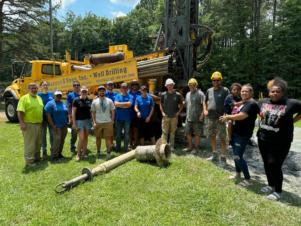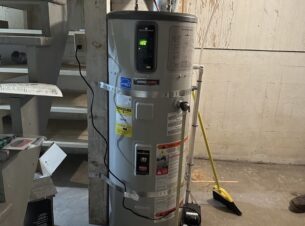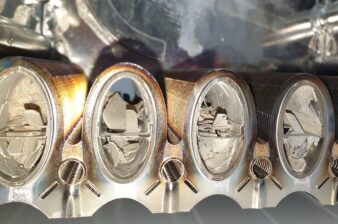 It seems like everything we buy today is temporary; like everything is just replaceable. Even some houses, or at least parts of houses. I’m not just talking about the TV on the wall or the appliances that seem to only last 5-10 years at most. Unfortunately our parents were likely the last to own a washer and dryer for 25 years. When Heather and I built our house nearly 15 years ago we did our research, we thought we bought the best appliances that fit our modest budget only to replace them seven years in just days before hosting Christmas for our extended family.
It seems like everything we buy today is temporary; like everything is just replaceable. Even some houses, or at least parts of houses. I’m not just talking about the TV on the wall or the appliances that seem to only last 5-10 years at most. Unfortunately our parents were likely the last to own a washer and dryer for 25 years. When Heather and I built our house nearly 15 years ago we did our research, we thought we bought the best appliances that fit our modest budget only to replace them seven years in just days before hosting Christmas for our extended family.
I had a great conversation with a national salesperson for a major tankless manufacturer recently and was surprised to learn from him that the average life span of a domestic tankless water heater in North America is just 8-9 years. The conversation took a sharp turn when we started talking maintenance and proper installation practices. That 8-9 year death rate is crazy to me considering I’ve got 15 year-old units out there I installed and service annually that show no sign of stopping. So I have to ask, is a tankless water heater just another throwaway appliance like the junk washer and dryers at the national big box store?
There are some things we can hang our hat on as being permanent these days when talking about our work. Generations gone by installed huge threaded or welded piping systems that are still in use today. Our version of the same might very well be PEX, although its hard to know for sure just yet. All opinions aside, its just too early to say modern plumbing systems wont last as long.
Just the other day while installing in-floor tubing for a radiant slab in a basement and garage of my little sister’s new house I got to thinking that it was definitely permanent. Unless someone decides to remodel the basement bathroom piping, that tubing isn’t going anywhere and I have no doubt it will last quite a while. After all, I did my research and selected the product to fit the budget, right?




Join the conversation: